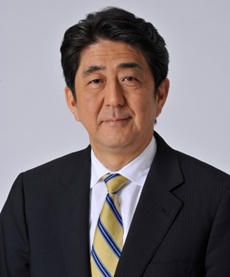Japan to pump $182 bn more to stimulate economy
06 Dec 2013
 Japanese prime minister Shinzo Abe's cabinet yesterday approved an 18.6 trillion ($182 billion) package to pull the economy out of deflation, the second since he assumed power.
Japanese prime minister Shinzo Abe's cabinet yesterday approved an 18.6 trillion ($182 billion) package to pull the economy out of deflation, the second since he assumed power.
The overall package of 18.6 trillion yen, however, is an exaggerated figure, bulk of which are loans from government-backed lenders and spending by local governments that are already scheduled.
The core of the package is 5.5 trillion yen in spending measures which Abe ordered in October as a measure to boost economy ahead of a national sales-tax hike in April. The government would not require to sell the new debt to fund this spending.
The Nikkei quoted Prime Minister Shinzo Abe as saying that his latest fiscal stimulus is an "investment in the future" that will put the economy in a "positive cycle" by lifting wages.
Addressing a gathering of about 400 business chiefs, economists and government officials at a year-end forum hosted by the Japan Center for Economic Research, TV Tokyo and The Nikkei, Abe noted the 5,000-point climb of the Nikkei Stock Average since last year, when participants of the business forum had predicted a roughly 1,000-point increase in the Nikkei.
The package had raised concerns that the country's government had yet to do away with dependence on stop-gap measures and piecemeal policymaking that according to some had hampered long-term growth.
Reuters quoted Hiroshi Miyazaki, senior economist at Mitsubishi UFJ Morgan Stanley Securities as saying that market participants wanted the government to focus ever more energy on economic policy.
Some of the items like reconstruction from the earthquake were already scheduled and did not really constitute an economic strategy.
The measures approved yesterday would add 1 percentage point to gross domestic product and create around 250,000 jobs, according to the Cabinet Office.
The stimulus package was compiled at the behest of Abe after deciding to raise the national sales tax earlier this year. The tax hike would take effect in April, and is expected to lift the national sales tax to 8 per cent from the current 5 per cent.
New bonds would not be issued to pay for the package, rather the package would be covered by tax revenues that had exceeded initial budgetary projections. The recovery in Japan's economy is being credited to Abenomics - a series of policies spearheaded Shinzo Abe last year to help the faltering economy beat deflation.
Among the steps approved are measures to boost competitiveness; assist women, youth and the elderly; accelerate reconstruction from the March 2011 earthquake and tsunami; and build infrastructure for the 2020 Tokyo Olympics.
''This includes steps to boost capital expenditure for the future and ensure the economy stays in a positive cycle,'' Abe said in a speech about the stimulus to businessmen and economists. ''If companies invest more and wages rise more, then the positive (economic) cycle materialises.''



















